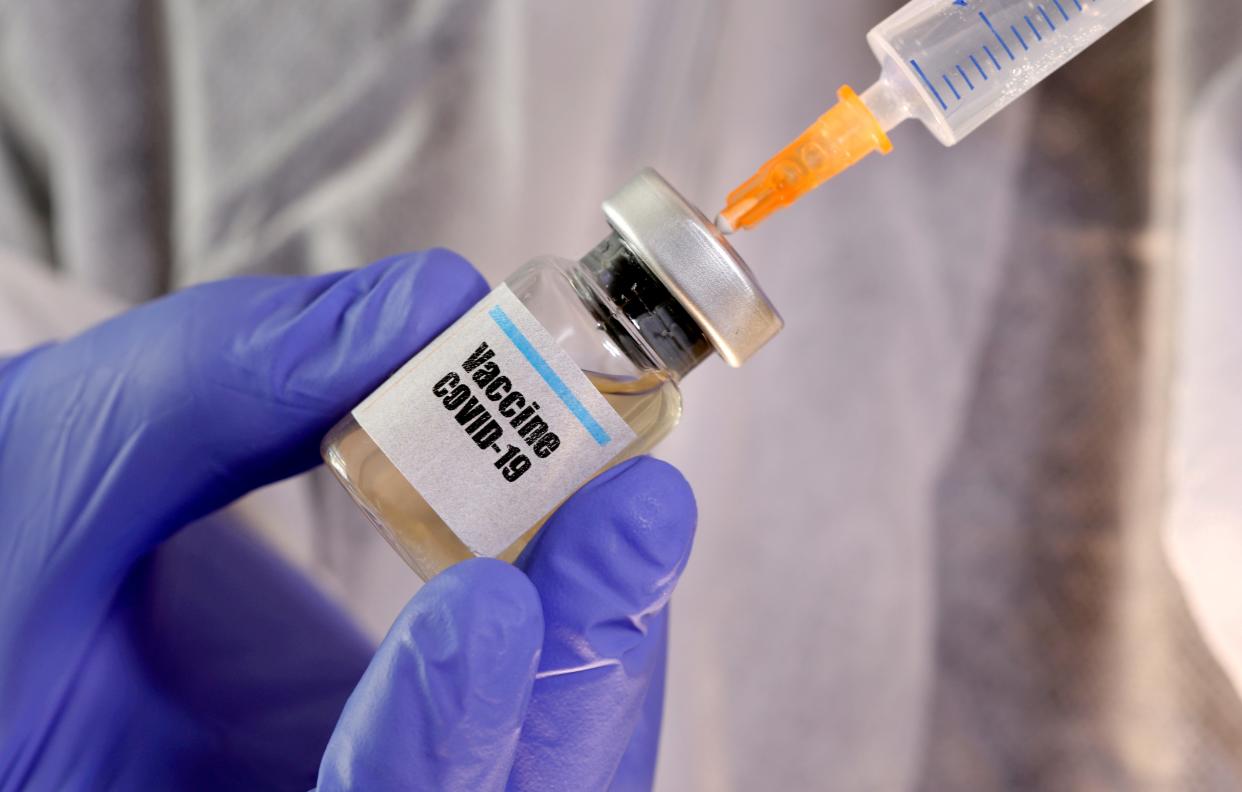Coronavirus vaccine: When will one be ready?

Scientists around the world continue their race to find a Covid-19 vaccine, with the global number of recorded coronavirus cases now above 50 million.
Although vaccine development can take more than a decade, the process has been accelerated by governments and the pharmaceutical industry in the hope of containing the pandemic.
In total, the World Health Organisation (WHO) is tracking more than 200 candidate vaccines, most of which are still at an early stage of development.
While none of them has gained clinical approval, more than 10 are now in third phase trials, meaning they are being administered to large groups of volunteers to ensure their safety and effectiveness.
Interim data from trials of Pfizer and BioNTech’s jab appeared to give the most significant boost yet to global hopes and stock markets on 9 November, as the two firms said their vaccine may be more than 90 per cent effective in preventing disease.
Describing its release of the non-peer-reviewed results a “great day for science and humanity”, Pfizer said it expected its vaccine would gain emergency regulatory approval in the US in November.
But despite promising signs from several candidate vaccines, it still remains unclear when mass inoculations will be possible.
What do experts say?
In October, the head of the WHO Tedros Adhanom Ghebreyesus said a vaccine could be ready by the end of 2020, telling a meeting of the UN agency’s executives: “There is hope.”
“We will need vaccines and there is hope that by the end of this year we may have a vaccine.”
Dr Anthony Fauci, the US’s leading infectious disease expert, has also said this is a possibility, saying on 25 September that vaccinations could begin from November or December.
However, Patrick Vallance, the UK government’s chief scientific adviser, said he believed a coronavirus vaccine would not be widely available in Britain until next spring.
“[It is] unlikely we'll have a vaccine for any sort of widespread use in the community, before at least spring next year,” Mr Vallance told MPs on Monday.
“I do think that we should not over-promise. I think it's very important that we give a realistic picture of where things are.”
Meanwhile, Jeremy Farrar, who is on the government’s Sage committee, told Sky News that he thought some vaccines would be ready early next year.
"I think in the first quarter of next year we will have vaccines - will have more than one vaccine,” Mr Farrar said, acknowledging that things will be tough for the rest of the year.
The race to pre-order doses
Ahead of a potential vaccine, countries have pre-ordered billions of doses from the companies developing candidate vaccines.
As of September, the UK had secured 380 million doses from a combination of manufacturers, equivalent to almost six shots per person.
If the Pfizer vaccine receives regulatory approval, the UK is poised to receive 10 million doses by the end of this year, which will be distributed to those deemed most at-risk from Covid-19. An additional 30 million doses has also been ordered.
Rich countries have bought up just over half the world’s supply of candidate vaccines – 2.7 billion doses – according to a September report by Oxfam.
As a result of the unequal purchasing power of different nations, the WHO’s COVAX scheme hopes to distribute 2 billion doses fairly by the end of 2021.
So far, there have been 40.06 million coronavirus infections worldwide and 1,113,218 deaths caused by the disease, according to a tally by Reuters.
Read More
New study to infect healthy volunteers with coronavirus
Chinese drugmaker setting up vaccine production lines
‘Unlikely’ that vaccine will be able to fully stop spread of virus

 Yahoo News
Yahoo News 